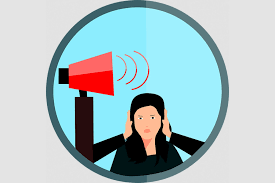Sound pollution, often referred to as noise pollution, is a significant environmental issue that affects both human health and the ecosystem. Sound Pollution is very important for SSC and HSC also job & admission preparation.
Sound Pollution
Noise pollution refers to unwanted or excessive sound that can have harmful effects on human health, wildlife, and environmental quality. It occurs when unwanted or excessive sounds disrupt the natural balance of our environment, particularly in densely populated urban areas. Common sources of sound pollution include traffic from highways and railways, construction activities, industrial operations, and loud music. The impact of noise pollution on health is serious; it can lead to hearing loss, increased blood pressure, stress, anxiety, sleep disturbances, and even cardiovascular problems.
For instance, a report by the United Nations Environment Programmed (UNEP) indicates that cities like Dhaka experience noise levels exceeding 119 decibels, which is more than double the safe limit. To combat sound pollution, various measures can be implemented. These include creating ‘Silent Zones’ in busy areas, using soundproof materials in buildings, planting trees to absorb sound, and enforcing regulations to limit excessive noise. An example of a successful initiative is the ‘Silent Zone’ launched near Hazrat Shahjalal International Airport in Dhaka, which aims to reduce noise in the vicinity.


